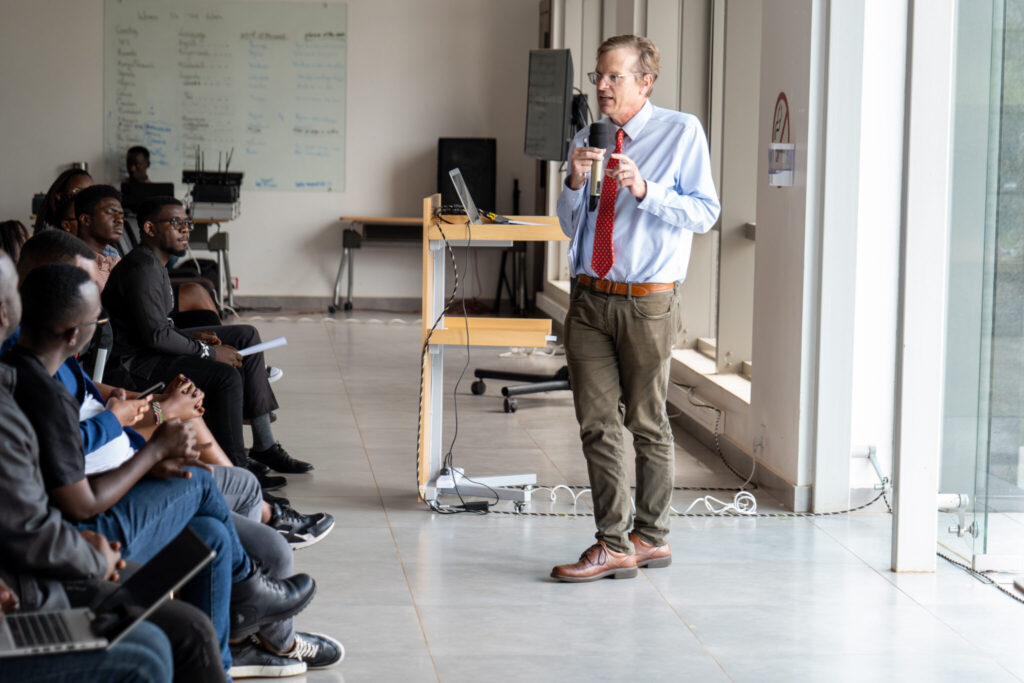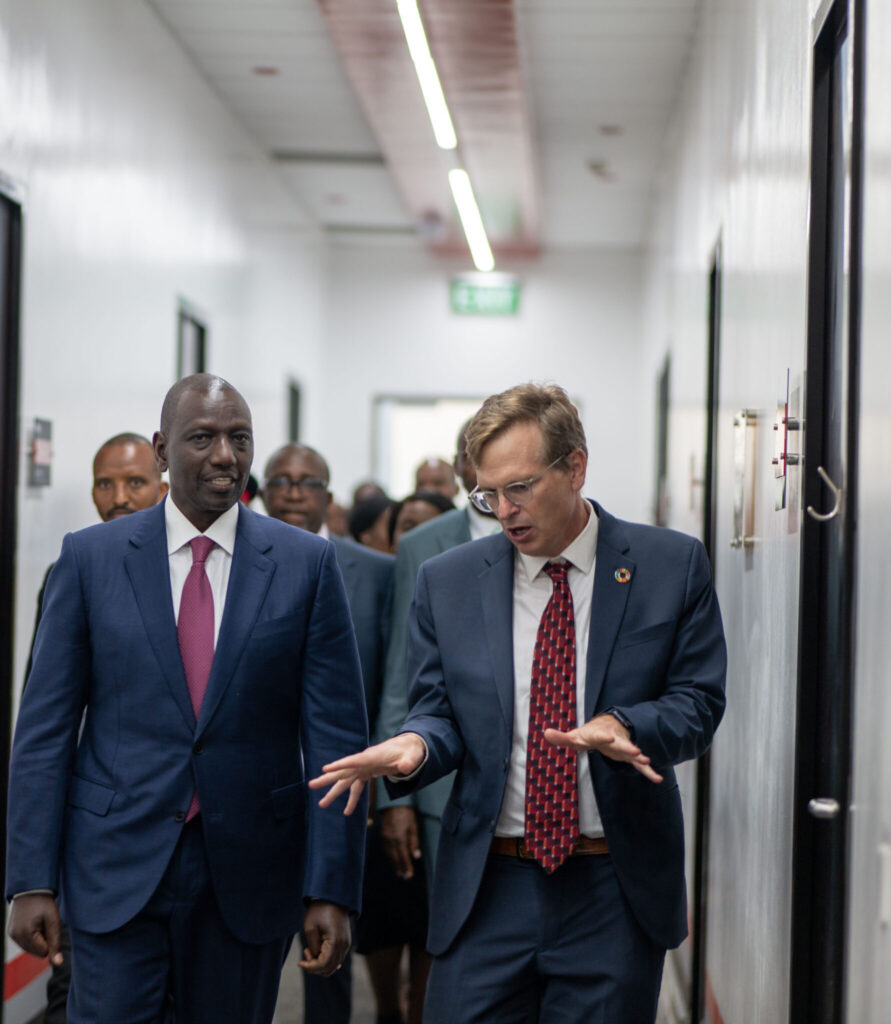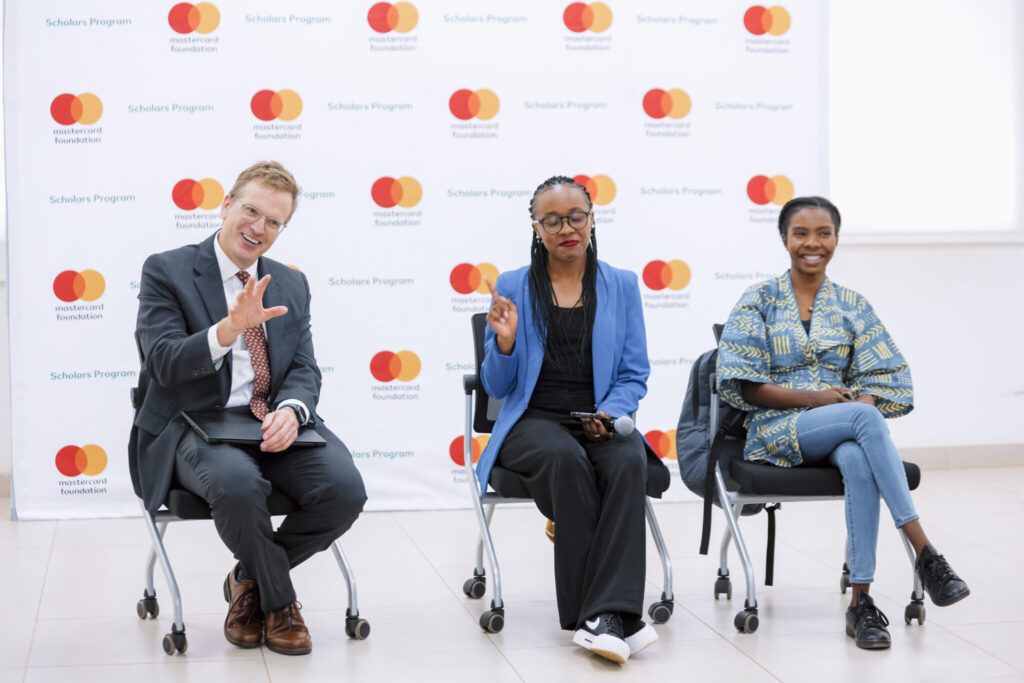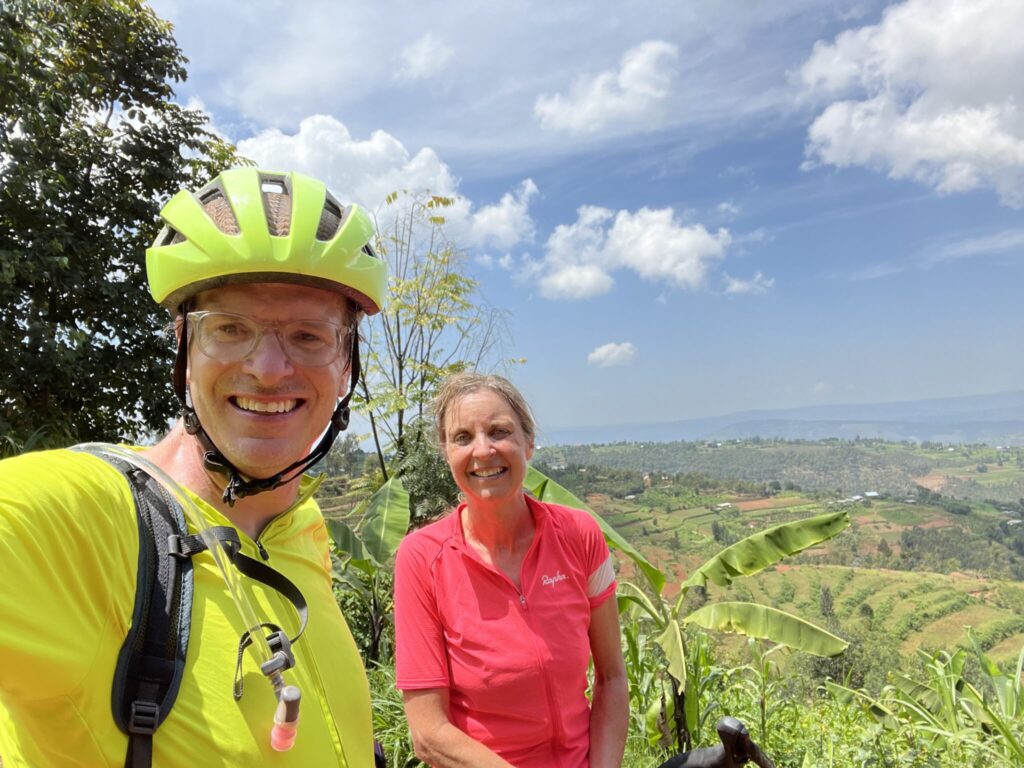
As a boy, Allen Robinson was enamored with the mechanics of things – like concrete pours on his uncle’s farm in Massachusetts and machine tools in his grandfather’s basement.
It wasn’t until his sophomore year at Stanford University that the intersection of science, math, and the environment illuminated his path to a civil engineering bachelor’s degree. That fascination, and an interest in energy systems, later led him into a 25-year career as a mechanical engineering faculty member at Carnegie Mellon University.
In October, he will leave his position as the director of Carnegie Mellon University Africa in Kigali, Rwanda, to return to Colorado State University as the new dean of the Walter Scott, Jr. College of Engineering. He was last at CSU in 2012-2013 with a joint appointment in Atmospheric Science and Mechanical Engineering.
Breaking down barriers
So what department will he land in once he’s at CSU?
Well, potentially all of them.
“I’m a big believer in interdisciplinary research and education. When we talk about grand challenges like climate change, they don’t fall into any discipline very cleanly,” he said in an interview from Rwanda. “I am really motivated by the environment and sustainability. That is what I was focused on when I went to graduate school where I studied air quality, which has such a strong link to energy systems.”

While at CSU, he collaborated with Dan Zimmerle, Anthony Marchese, Jennifer Peel, John Volckens, Sonia Kreidenweis, and others, at what was then the Engines and Energy Conversion Laboratory (now the Powerhouse campus). At CSU, Robinson became involved in research on methane emissions from shale gas production.
“When I first got to CSU, fracking had just started really accelerating. The Denver-Julesburg basin was one of those hives of activity,” he said.
Of the research collaboration, he said, “it was a super productive time, and it spawned a series of exciting projects that are still going on today. We made tremendous progress understanding methane leakage, which led to changes in industry practice. Projects like these are why I became an engineer. I like to see real world impact and how it’s going to make the world a better place.”
In addition to heading CMU-Africa, Robinson recently served as director of the EPA-funded Center for Air, Climate, and Energy at Carnegie Mellon, which involves seven universities and a national lab. The center studies the intersection of air quality, public health, climate and energy with cross-cutting themes of environmental justice and data democratization.
This nexus is an area of strength in CSU’s engineering college with such unique facilities as the Powerhouse, an internationally known Atmospheric Science department, and Scott Presidential Chairs Tami Bond and James Hurrell – and many other scientists – working at the cutting edge of climate science, health, and engineering.
A small world
At CMU-Africa, Robinson oversees 22 faculty and 36 staff members, and teaches courses including information communication technology in an African context. His courses go beyond the technology, addressing topics such as socio-economic barriers to digital technologies, cultural differences, and politics. The campus serves nearly 300 engineering master’s students from 20 African countries studying information technology, artificial intelligence, and electrical and computer engineering.

In 2022, he was part of the CMU team that secured a $275 million gift from the Mastercard Foundation to expand CMU-Africa. He also led the creation of Afretec, a pan-African network of leading technology universities to accelerate digital transformation across the entire African continent.
Robinson has been humbled and enriched by the experience of working in Rwanda where the average annual per capita income is only $970. He has taught students who grew up without electricity or running water and are now programming in Python and starting technology companies.
In his role as dean, he said he believes he can draw from his work in Africa – namely, to bring diverse people together and create opportunities, particularly for first-generation students.
“Collaboration is not just connecting people within engineering, but bridging beyond engineering,” he said. “As dean I am excited to have the opportunity to connect people from all parts of campus from Natural Sciences to Business to Vet Med. The institutions that collaborate in a genuine way can solve society’s grand challenges. ”
“The land-grant mission always speaks to me – what it means for education and how education can lift people up who are first-generation, who haven’t had the same opportunities,” he added. “Before moving to Africa, I had traveled internationally, but always for a week here or there. That’s different than my experience of living and working in Africa. It has grown my appreciation for the power of diversity. I see how privileged we all are to be Americans. While riding my bike through rural Rwandan villages I often see children and think about the extraordinary challenges they face compared to myself or someone in the U.S.”
Family matters
Cycling is how Robinson relaxes. He spends his spare time riding his gravel bike on “infinite” dirt roads and the legendary rolling hills of Rwanda.

“Cycling in Rwanda is actually like riding your bike up Rist Canyon,” he said. “I’ve ridden a lot around Fort Collins, but that was before the gravel revolution, so I’m really excited to check out the gravel riding.”
Robinson and his wife, Kathy Lachenauer, who also teaches at CMU-Africa, are looking forward to returning to Fort Collins. Lachenauer previously worked in Advancement at CSU in the College of Veterinary Medicine and Biomedical Sciences and formerly served as executive director of Family House, a Pittsburgh non-profit organization that provides affordable housing to medical patients and families. They have two sons. Jack just graduated from Tufts University and will be serving as an officer in the U.S. Army, and Gus is studying engineering at Stanford.
As for that 4-year-old boy whose uncle told him he was destined to be an engineer?
He’s grown up to “empower people to pursue their dreams,” Robinson said. “In the words of Andrew Carnegie, ‘my heart is in the work’.”